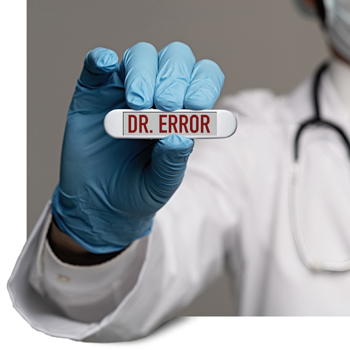
Modern technology has revolutionized the way surgeries are performed today, allowing patients to make recoveries that would have once been impossible. While most patients feel comfortable and confident in the care of their surgeons, the reality is that negligence and substandard care do occur. If this happened to you or someone in your family, you might be wondering whether you can hold your surgeon responsible for your injuries.
Can I Sue a Surgeon for Medical Malpractice?
Yes, surgeons can be held liable for medical malpractice if, during surgical treatment, they cause further injury to the patient because of negligence or a medical mistake. While surgeons go through intense education and training to qualify for their roles, patients are injured every year as a result of major surgical errors. Some causes of surgical errors include:
- Unavailability of physician
- Failure of the staff to perform a thorough preoperative plan, including reviewing all information about the patient’s medical history
- Inadequate communication between medical staff, resulting in preventable errors during surgery
- Incompetence or inadequate training for a member of the surgical team
- Extreme fatigue because of long shifts and lack of sleep
What Is Medical Malpractice?
Medical malpractice occurs when a healthcare professional or medical provider neglects to provide a patient with appropriate treatment, fails to take appropriate action, or offers substandard treatments that result in injury or death. It could occur because of improper treatment, inaccurate diagnosis, or even because the physician treated the patient without permission.
A team of Johns Hopkins patient safety experts found that over 250,000 deaths occur each year as a result of medical mistakes, making medical malpractice the third-leading cause of death in the U.S. behind heart disease and cancer.
Common Types of Medical Malpractice
The most common types of medical malpractice are:
- Improper treatment: If a surgeon treats a patient in a way that no competent medical professional would, the patient could have a valid claim for medical malpractice. Similarly, the patient could also have a valid claim if the surgeon selects the appropriate surgical treatment but fails to perform it competently.
- Failure to diagnose: A patient may have a valid medical malpractice claim if a competent doctor would have made a different diagnosis or correctly diagnosed the patient’s illness that would have led to a better outcome.
- Failure to warn a patient about risks: Doctors have a legal duty to inform patients about any known risks associated with surgical procedures. If the patient wouldn’t have gone through with the surgery had they understood all of the risks and that patient was injured as a result, then they may have a valid claim of medical malpractice.
Requirements for a Medical Malpractice Claim
There are a number of things that patients have to prove to assert that they have a valid claim of medical malpractice, including:
Doctor-Patient Relationship
In order to make a claim for medical malpractice, you must prove that you had a doctor-patient relationship with your surgeon. In other words, you have to show that you saw your surgeon for treatment and that they were treating you for an illness or health condition. Questions could arise about the validity of a doctor-patient relationship if the surgeon did not directly treat you.
Breach of Duty
In spite of modern medicine, sometimes the outcome after a surgical procedure isn’t a positive one and, unfortunately, sometimes things go wrong. However, just because the surgeon wasn’t able to achieve the desired outcome doesn’t automatically mean that they were negligent during the course of treatment.
To have a valid medical malpractice claim, you have to be able to prove that the surgeon did not behave in the same manner that they reasonably would be expected to. The surgeon isn’t required to be the best possible, but they are expected to be reasonably skillful and careful in the execution of the surgical procedure. Whether the surgeon was reasonably skillful is often at the heart of this type of claim.
Causation
Finally, you have to prove causation—that the negligence of the surgeon led to your injury or caused your condition to become worse. This can also be challenging to prove. For example, just because the patient doesn’t survive a procedure, it doesn’t automatically mean that the surgeon’s negligence was the cause of their death. The patient has to prove that the incompetence of their surgeon more likely than not caused the injury or caused the condition to worsen.
Damages
You cannot have a medical malpractice claim without suffering some harm. Types of damages that a patient may experience can include pain and suffering, medical expenses, lost income or earning potential, and more.Medical malpractice law is highly regulated, and these cases are often complex and can be challenging to prove. Surgeon medical malpractice lawyers who have experience with these claims, understand the relevant laws and regulations, and know how to gather evidence to build a strong case can help you navigate the legal challenges related to medical malpractice. For a free review of your case, contact the experienced attorneys at Janet, Janet & Suggs today.
